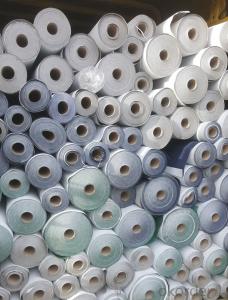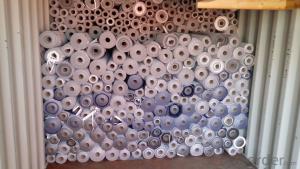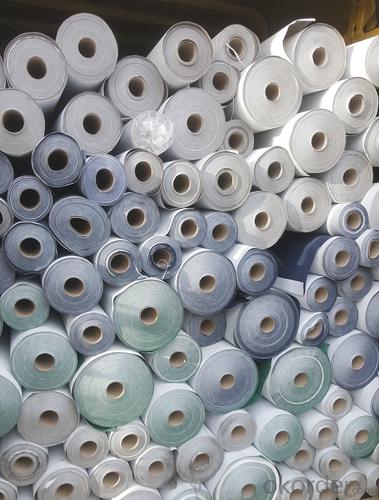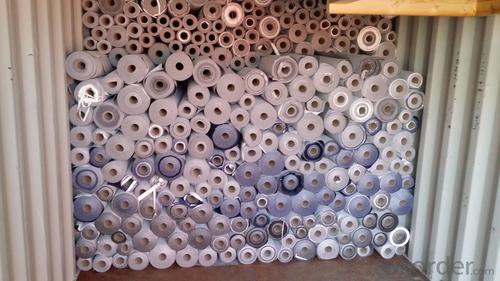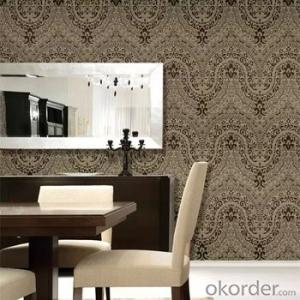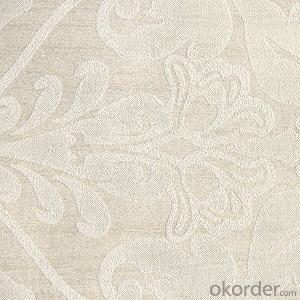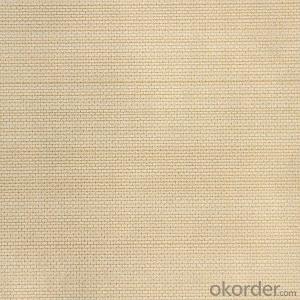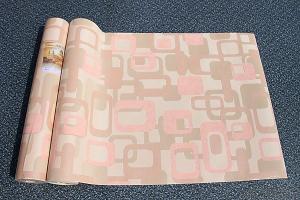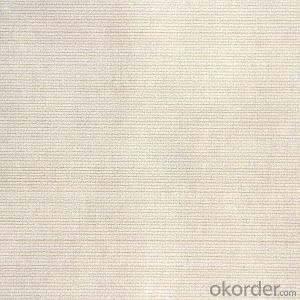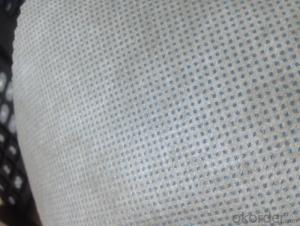breathable three-layered synthetic non-woven vapor permeable membrane as wall wrap
- Loading Port:
- SHANGHAI
- Payment Terms:
- TT OR LC
- Min Order Qty:
- 8500 m²
- Supply Capability:
- 100000 m²/month
OKorder Service Pledge
OKorder Financial Service
You Might Also Like
Specification
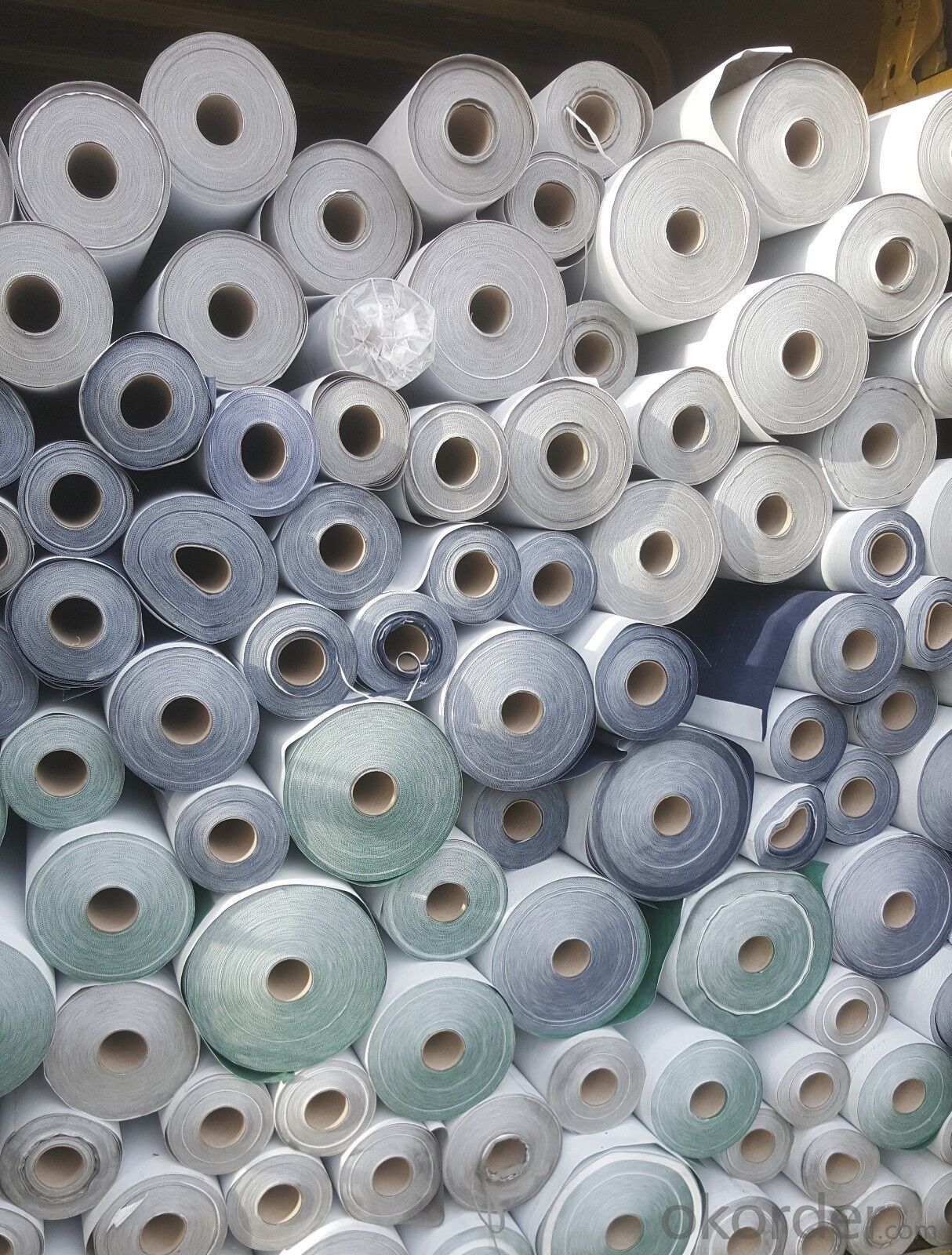
Product Feature:
Air open & vapour permeable
More breathable than any other 'air open' underlay on the market
Lowest vapour resistance of all breathable membranes
Being both air open & vapour permeable further minimises the risk of condensation forming
No ventilation required
Strong 3 layer material
Superior nail tear strength
Physical Property | Result | Test Method |
Size | 1.5M*50M | |
Colour | Variety | |
Thickness | 0.4~0.43mm | |
Weight | 115g/m2 | |
Water vapour transmission | >1000g/m2/24h | BS 3117(25℃/75%RH) |
Hydrostatic Pressure of Water | 1000mm,2h No Leaking | BS EN 20811 |
Water Resistance | Pass | BBA T1/15(2) |
Nail Tear Resistance | ≥70N(MD,CD) | MOAT 27:5.4.1 |
Tensile Strength | 210N/5cm(MD),150N/5cm(CD) | EN ISO 527-3(Test Speed 100mm/min) |
Bending at low temperature | -30℃ No Cracking | |
UV Resistance | 3~4 month | |
Aging Test under Hot Air(80℃,168h) | Visual Inspection | No powder,No layered |
Retention rate of Tensile Strength | >80%(MD,CD) | |
Hydrostatic Pressure of Water | 1000mm,2h No Leaking | |
Water vapour transmission | >1000g/m2/24h |
Our company :
our company is a leading professional manufacturer in China, which locates in Yangzhou State-grade Development Zone,Yangzhou City, Jiangsu Province, nearby Shanghai.
We have advanced production lines with the technology from Italy and Germany, which are applied to nonwoven products, film lamination, roofing materials, disposable medical products, packaging materials and so on.Main products:Nonwoven fabric , SMS, SMMS and manufactured productsFilm or foil laminated products Roofing membrane, flooring underlayPE woven fabric, PE tarpaulin, vapor barrierGreenhouseWe not only have first-class processing line, but have first-grade quality management. We have been qualified by ISO9001 (quality) and CE, this system can supply active way to guarantee the quality. We have exported to many countries, such as Canada, USA, Chile, Argentina, New Zealand, Australia, Malaysia, Japan, Ukraine, Latvia, Slovenia, Slovakia, Spain, CZ, Russia, Croatia, Bulgaria, Romania, Italy, UK, Germany, Greece and so on. With a group of excellent senior management and hi-tech R& D personnel and our skilled workers, we can supply you the goods with competitive prices and better quality. We look forward to establish friendly and long term relationship with you in the near future.
FAQ:
1. who are we?
We are based in Jiangsu, China, start from 2008,sell to Eastern Europe(18.00%),Southern Europe(15.00%),Northern Europe(15.00%),Western Europe(12.00%),South Asia(6.00%),Eastern Asia(5.00%),Oceania(5.00%),Central America(5.00%),Southeast Asia(5.00%),North America(3.00%),South America(3.00%),Africa(3.00%),Domestic Market(3.00%),Mid East(2.00%). There are total about 11-50 people in our office.
2. how can we guarantee quality?
Always a pre-production sample before mass production;
Always final Inspection before shipment;
3.what can you buy from us?
Breathable Membrane, Reflection Breathable Membrane, Housewrap, Vapor Barrier, Heat Insulation Film
4. why should you buy from us not from other suppliers?
We not only have first-class processing line, but have first-grade quality management. We have been qualified by ISO9001 (quality) and CE, this system can supply active way to guarantee the quality. We have exported to many countries, such as Canada, USA,
5. what services can we provide?
Accepted Delivery Terms: FOB,CFR,CIF,EXW;
Accepted Payment Currency:USD,EUR,JPY,CAD,HKD,CNY;
Accepted Payment Type: T/T,L/C,Credit Card,PayPal,Western Union,Cash;
- Q: Are there any specific considerations for installing a waterproofing membrane on concrete surfaces?
- Yes, there are several specific considerations for installing a waterproofing membrane on concrete surfaces. Firstly, it is important to ensure that the concrete surface is clean, dry, and free from any loose materials, oil, grease, or other contaminants. Any dirt or debris on the surface can prevent proper adhesion of the waterproofing membrane, compromising its effectiveness. Secondly, it is crucial to inspect the concrete surface for any cracks, spalling, or other damage. These defects should be repaired prior to installing the waterproofing membrane, as they can allow water to penetrate through the membrane and compromise its ability to protect the concrete. Additionally, the type of waterproofing membrane chosen should be suitable for the specific conditions and requirements of the project. There are various types of membranes available, such as sheet membranes, liquid-applied membranes, or cementitious coatings. Each type has different application methods, durability, flexibility, and resistance to various substances, so it is important to select the appropriate membrane for the specific concrete surface and its intended use. Furthermore, the installation of the waterproofing membrane should be carried out in accordance with the manufacturer's instructions. This includes applying the membrane at the recommended thickness, ensuring proper overlap and adhesion of the membrane seams, and using any recommended primers or adhesives. Lastly, it is important to consider the long-term maintenance and durability of the waterproofing membrane. Regular inspections, maintenance, and repairs should be conducted to ensure the membrane remains intact and effective in preventing water penetration.
- Q: Can a waterproofing membrane be used in conjunction with drainage systems?
- Yes, a waterproofing membrane can be used in conjunction with drainage systems. The membrane provides a barrier to prevent water penetration, while the drainage system helps to channel and remove any water that may accumulate. This combination ensures effective and comprehensive waterproofing for various applications such as basements, roofs, and underground structures.
- Q: Does a waterproofing membrane prevent water infiltration through concrete or other building materials?
- Yes, a waterproofing membrane is designed to prevent water infiltration through concrete or other building materials. It acts as a protective barrier that is applied to the surface of the material, forming a water-resistant layer. This membrane can be made from various materials such as bitumen, rubberized asphalt, or liquid polymers. When properly installed, it can effectively prevent water from seeping through the concrete or other building materials, thus protecting the structure from potential water damage or moisture-related issues.
- Q: Can a waterproofing membrane be used for a parking garage deck?
- Yes, a waterproofing membrane can be used for a parking garage deck. A waterproofing membrane is a barrier that is designed to prevent water from penetrating into the underlying structure. In the case of a parking garage deck, which is exposed to various weather conditions and potential water leaks from vehicles, a waterproofing membrane can help protect the concrete slab and prevent moisture-related issues such as cracking, corrosion, and deterioration. By applying a waterproofing membrane to the parking garage deck, it creates a protective layer that prevents water from seeping into the concrete. This membrane can be applied as a liquid coating, sheet membrane, or a combination of both. The choice of membrane will depend on factors such as the desired level of protection, the traffic load, and the specific requirements of the project. In addition to preventing water penetration, a waterproofing membrane for a parking garage deck can also have other beneficial properties. Some membranes are designed to be resistant to chemicals and oil, which is important considering the potential exposure to vehicles. They can also provide an added layer of protection against freeze-thaw cycles, which can cause damage to the concrete structure. It is worth noting that the installation of a waterproofing membrane for a parking garage deck should be done by experienced professionals, following the manufacturer's guidelines and industry standards. Proper surface preparation, including cleaning and repairing any cracks or defects, is crucial for ensuring the long-term effectiveness of the membrane. In summary, a waterproofing membrane can be an effective solution for protecting a parking garage deck from water damage. It helps to prevent water penetration, protects the concrete from deterioration, and can enhance the overall durability and lifespan of the structure.
- Q: Can waterproofing membranes be used on plant rooms?
- Yes, waterproofing membranes can be used on plant rooms. Plant rooms often contain equipment and machinery that require protection from water damage. Waterproofing membranes provide a barrier against water infiltration, preventing leaks and potential damage to the plant room and its contents. These membranes are typically applied to the walls, floors, and roofs of the plant room to ensure complete waterproofing. Additionally, waterproofing membranes can also offer protection against other elements such as chemicals and temperature fluctuations, making them an ideal solution for plant rooms.
- Q: Are waterproofing membranes resistant to acid rain?
- Yes, waterproofing membranes are generally resistant to acid rain. Waterproofing membranes are designed to provide a barrier against water penetration, and they are typically made from materials that are resistant to various environmental factors, including acid rain. Acid rain is caused by the emission of sulfur dioxide and nitrogen oxide pollutants, which react with water vapor in the atmosphere to form sulfuric and nitric acids. These acids can corrode and damage certain materials over time, but waterproofing membranes are specifically engineered to withstand acid rain and other environmental stresses. They are commonly made from materials such as modified bitumen, thermoplastic polyolefin (TPO), ethylene propylene diene monomer (EPDM), or polyvinyl chloride (PVC), which have high resistance to acid rain. Additionally, some waterproofing membranes may have additional protective coatings or additives that enhance their resistance to acid rain, ensuring long-term durability and performance. However, it is important to note that the exact resistance level of a waterproofing membrane to acid rain may vary depending on the specific product and manufacturer, so it is always recommended to consult the manufacturer's guidelines or specifications for accurate information.
- Q: Can a waterproofing membrane be used in historic buildings?
- Yes, a waterproofing membrane can be used in historic buildings. However, it is important to consider the specific needs and requirements of the building. The use of a waterproofing membrane should be carefully assessed and integrated into the building's preservation and conservation plans to ensure compatibility with its historic fabric and materials. Professional advice and expertise should be sought to ensure the appropriate selection and installation of the waterproofing membrane without compromising the building's historic integrity.
- Q: Can a waterproofing membrane be used on bridge decks?
- Indeed, it is possible to utilize a waterproofing membrane on bridge decks. These decks are constantly subjected to diverse weather patterns, encompassing rain, snow, and ice, which, over the course of time, can lead to detrimental effects. By applying a waterproofing membrane to bridge decks, one can effectively safeguard the concrete against moisture infiltration, thus averting decay and extending the bridge's lifespan. Moreover, this waterproofing membrane acts as a barrier that thwarts chloride ions, notorious for hastening the corrosion of reinforcing steel within the bridge deck. Consequently, the incorporation of a waterproofing membrane on bridge decks is a customary protocol in bridge construction and maintenance, serving as a guarantee for their endurance and longevity.
- Q: Can waterproofing membranes be used on terraces?
- Yes, waterproofing membranes can definitely be used on terraces. In fact, using waterproofing membranes on terraces is highly recommended to protect the structural integrity of the terrace and prevent water damage. Waterproofing membranes act as a barrier, preventing water from seeping into the terrace and causing leaks or cracks. They are commonly used on flat terraces, rooftop terraces, and balconies to ensure that water does not penetrate the surface and cause damage to the underlying structure. Waterproofing membranes are available in various types, such as liquid-applied membranes, sheet membranes, and self-adhesive membranes, providing different options to suit the specific needs and requirements of the terrace. By applying a waterproofing membrane, the terrace can be protected from moisture, UV rays, and other environmental factors, extending its lifespan and ensuring a durable and long-lasting surface.
- Q: Can a waterproofing membrane be used on foam block surfaces?
- Foam block surfaces can benefit from the use of a waterproofing membrane. Foam blocks, like expanded polystyrene (EPS) or extruded polystyrene (XPS), are commonly utilized for insulation in buildings. However, they are not naturally waterproof and can absorb moisture if exposed. To safeguard against water infiltration and potential harm, the application of a waterproofing membrane is recommended. This membrane acts as a protective barrier, preventing water from penetrating the foam and safeguarding it against issues caused by moisture, such as mold, mildew, or degradation. Selecting a waterproofing membrane that is compatible with foam block surfaces is crucial, and it is essential to adhere to the manufacturer's instructions for proper application. It is also advisable to seek guidance from a professional or building engineer to ensure the correct waterproofing solution is chosen for the specific foam block application.
Send your message to us
breathable three-layered synthetic non-woven vapor permeable membrane as wall wrap
- Loading Port:
- SHANGHAI
- Payment Terms:
- TT OR LC
- Min Order Qty:
- 8500 m²
- Supply Capability:
- 100000 m²/month
OKorder Service Pledge
OKorder Financial Service
Similar products
Hot products
Hot Searches
Related keywords
